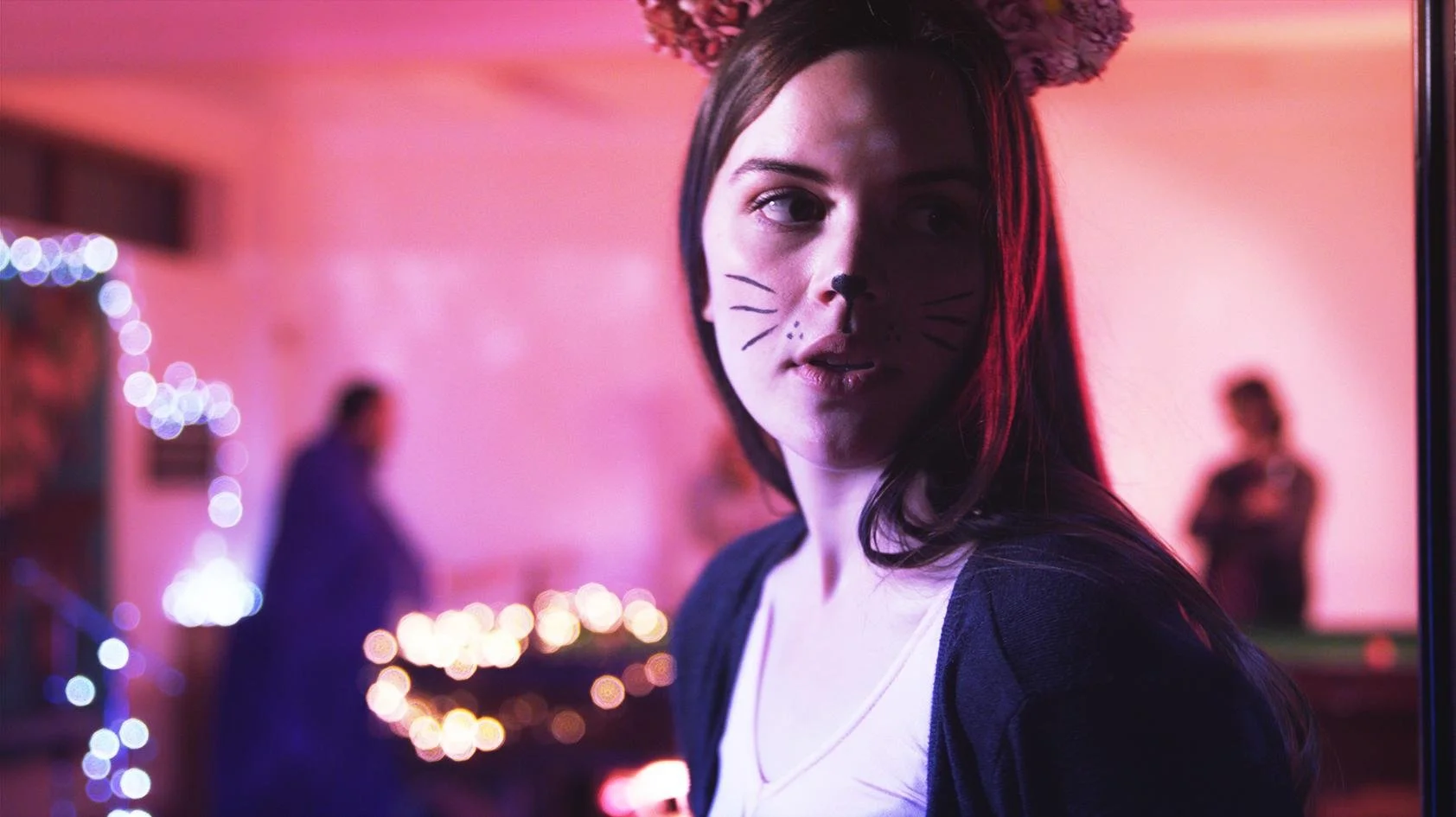MUCH ADO plays out The Bard's work largely without comment
Much Ado
Written and Directed by Hillary Shakespeare and Anna-Elizabeth Shakespeare
Starring Emma Beth Jones, James McClelland, Luke Hunter, Anya Rivers
Unrated
Runtime: 1 hour, 56 minutes
Available on demand and in select theaters April 24
by Daniel Pecoraro, Contributor
Much like a solid chunk of the English-speaking world, I'm a fan of William Shakespeare. (Bold statement, I know!) The comedies speak to me the most, as a combination of "goofus" and "sentimental dork" myself. There's typically a silly premise, regularly in a vaguely Mediterranean location, a bunch of jokes, and by the end basically everyone's found a partner, sometimes save a roguish villain.
Much Ado About Nothing isn't my favorite of the Shakespearean comedies — that goes to Twelfth Night, aka the source material for the immortal She's the Man (dir. Andy Fickman, 2006) — but it follows the formula well. The basic premise holds up: Claudio loves Hero, Benedick and Beatrice (Hero's cousin) love each other but don't know it, Don Pedro sets them all up together, Don John tries to foil the nuptials, and there's a mistaken-identity/impugning of honor plot device in the middle. I don't think I need to dig into the whole plot — the play's like 400 years old; you should read it if you didn't already in high school — but suffice it to say everyone ends up together happily ever after.
Yet it hasn't been adapted too much for the screen. There's the sun-splashed, Tuscany-set, 1993 version directed by Kenneth Branagh with standout performances by Sir Kenneth, Emma Thompson, Denzel Washington, Michael Keaton, and a just-barely-post Bill and Ted and Point Break Keanu Reeves, which was somehow not only the first big budget Much Ado but the very first English adaptation of the play with sound. There's the 2012 "all my friends are in town this weekend and I just made The Avengers" adaptation directed by not-yet-outed-as-an-abusive-jerk Joss Whedon, which feels almost like a Shakespeare society's casual summer hang (with a great turn by Nathan Fillion as the constable Dogberry).
And that brings us, like decennial clockwork, to 2023's Much Ado, directed by Hillary and Anna-Elizabeth Shakespeare (no relation to the Bard). In this adaptation, the scene is England, present day. Don Pedro (James Mcclelland), Claudio (Luke Hunter), and the boys in the play trade their traditional role as soldiers for university rugby uniforms. Benedick and Beatrice were, in this version, prep school mates and almost lovers before their "merry war" began. And instead of a Messina court or a Tuscan villa, the characters entwine at a sort of college retreat post-Aragon Rugby Club matchweek.
It's all pretty light, with the Shakespeare Sisters leaning into the comedy. The cast does well at portraying the young, clueless, and horny dramatis personae Shakespeare's comedies probably deserve. (There's also a whole montage to Imogen Heap's "Hide and Seek" that probably wasn't meant to be funny, but was to me; thanks, Lonely Island.) Special credit to Emma Beth Jones and Johnny Lucas for their portrayals of as Beatrice and Benedick, their barbs ringing true and their chemistry palpable. Jack Boal brings a suitably brooding presence as John. Hunter and Jody Larcombe (Hero) are all doe-eyed and adorable. And Harish Gautam brings more to the role of Friar Francis than I think I've seen in any Much Ado production, on stage or screen.
It all seems the antithesis to the live 2019 production of Much Ado directed by Kenny Leon for New York's Shakespeare in the Park (and recorded for PBS's Great Performances series). There, the play was set for contemporary Atlanta, with an all-Black cast, a clear point of view (Much Ado in the age of rape culture and Black Lives Matter, complete with a Stacey Abrams for President sign among the props), and a general theatrical mastery for Leon, who is returning to stage Hamlet for a lengthy run in Central Park this summer. In short, Leon's Much Ado had a clearly and vocally stated reason to exist.
The Shakespeare Sisters' Much Ado doesn't. It is by no stretch of the imagination definitive or essential. And that's fine, because it stakes no such claim. I can appreciate this Much Ado for what it is: a fun comedic romp, validating the premise of theater (and film) for its own sake.


